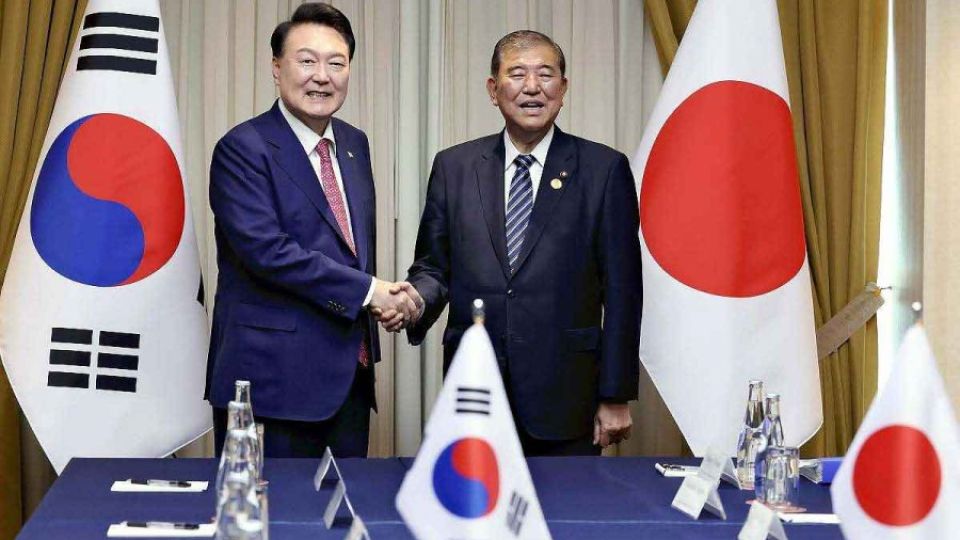December 11, 2024
TOKYO – The Japanese government is struggling to navigate its diplomatic policy toward South Korea as political disarray in the country is likely to last.
The Japanese government’s basic stance is to continue improving bilateral relations, which had progressed under the President Yoon Suk Yeol’s administration. However, criticisms of Yoon’s diplomatic stance toward Japan have been on the rise, making it unpredictable how Japan-South Korea ties will develop.
Japanese and South Korean diplomatic authorities held a regular meeting of high-ranking officials, together with a U.S. counterpart, over issues of North Korea in Tokyo on Monday.
“Though we did not discuss internal political affairs of South Korea, we confirmed the three countries’ cooperation to prevent escalating tensions in the Korean Peninsula even in these circumstances,” a senior Foreign Ministry official told reporters.
On Sunday, the day after an impeachment bill against Yoon failed to pass in the South Korean parliament, Prime Minister Shigeru Ishiba spoke to reporters at the Liberal Democratic Party headquarters, saying, “I want to monitor the situation with special and serious interest.”
He also said, “[South Korea] is an important neighbor and my stance to try to have close cooperative ties from now on has not changed.”
Ishiba suggested wanting to minimize negative impacts on the countries’ relationship.
While the Japanese government expressed “special and serious interest” in South Korean matters, it has refrained from directly mentioning Yoon’s decree of martial law, which triggered the country’s political disarray.
This contrasts with the U.S. stance, which was strongly critical of Yoon’s move. U.S. Deputy Secretary of State Kurt Campbell, for example, remarked that Yoon “badly misjudged.”
The Japanese government, it seems, has instead offered careful consideration toward Yoon.
However, Yoon himself is now subject to insurrection charges. As a result, a senior Japanese government official said a planned visit by the prime minister to South Korea in January, postponed for now, “has become almost impossible” to realize.
Though the opposition parties’ impeachment bill against Yoon fell through, the bill cited Yoon’s diplomatic policy of placing importance on ties with Japan as one of the grounds for impeachment.
This has led to concern for some in the Japanese government. “As we fear Japan being drawn into conflict within South Korea, we cannot take any action for the time being,” said one member.

